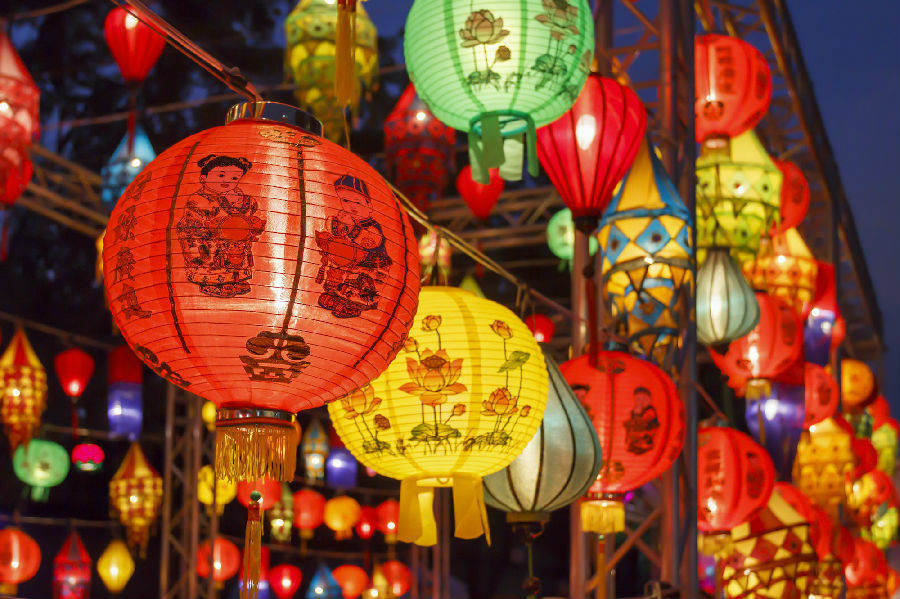(单词翻译:单击)
Today we're talking about the Lantern Festival, which marks the end of Chinese New Year.
今天我们要谈论的是元宵节,它标志着春节的结束。
So there's two different ways of saying Lantern Festival in Chinese.
所以元宵节在中文里有两种不同的说法。
And the first one is "yuan xiao jie", which directly translates into "first night festival."
第一种说法是“元宵节”,直译过来就是“第一夜节”。
The second way of referring to the Lantern Festival in Chinese is "shang yuan jie," which means the first first night.
第二种说法是“上元节”,意思是“第一个晚上”。
Why is it called "Lantern Festival" in English then?
那么为什么在英语里要称为“Lantern Festival”呢?
Simple, watching lanterns of different shapes and sizes is one of the main attractions.
很简单,这个节日主要的看点就是不同种类和样式的灯笼。
What is the origin of the Lantern Festival then?
那么元宵节的起源是什么呢?

There's a few different versions, and this is one of the legends behind it.
有几个不同版本的说法,下面是来自其中一个传说。
Long long time ago, there was a beautiful crane that flew from heaven to earth.
很久很久以前,有一只美丽的仙鹤从天庭飞到了人间。
The villagers that bound it, hunted it and killed it.
一个村的村民们抓住了它,绑了起来,并且杀了它。
This was the Jade Emperor's favorite crane, so he got so upset that decided to destroy the whole village.
可它是玉帝最喜欢的仙鹤,所以玉帝很伤心,于是决定消灭整个村子。
The Jade Emperor's daughter warned the village,
玉帝的女儿把这件事告诉了村民,
and a wise man instructed the villagers to hang red lanterns around their houses and explode firecrackers.
有个聪明人让村民把红色灯笼挂在屋子周围,并且燃放鞭炮。
When the army of the Jade Emperor coming to destroy the city saw this, they thought the village was already being destroyed.
当奉玉帝之命前来摧毁村子的天兵天将看到这种场景之后,认为村子已经被毁了。
So they left it alone, and therefore the villagers were safe and happy that the lanterns and firecrackers had saved them.
所以他们就离开了,村民们凭借灯笼和鞭炮逃过了一劫。
"Lantern" in Chinese is "deng long," and "Bian Pao" is firecracker.
Lantern翻译成中文就是“灯笼”,“鞭炮”指的就是firecracker。
Now the action of lighting or exploding firecrackers in Chinese is "fang bian pao".
点燃并使鞭炮爆炸的动作,在中文里叫做“放鞭炮”。


